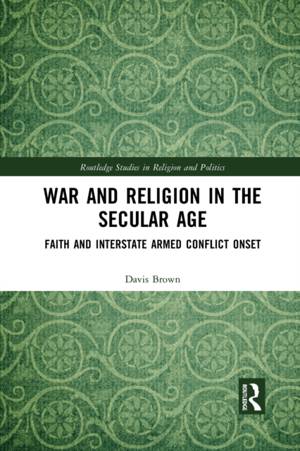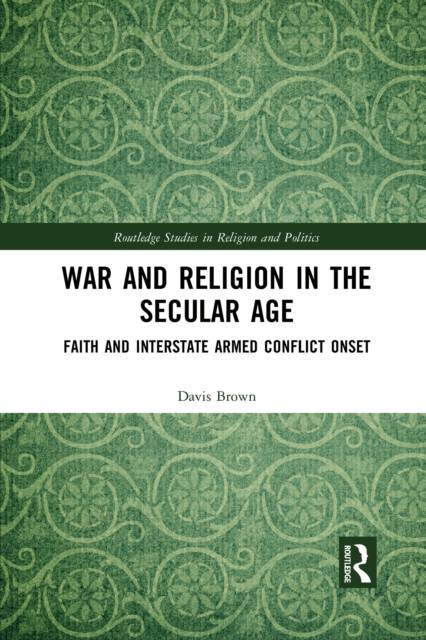
- Retrait gratuit dans votre magasin Club
- 7.000.000 titres dans notre catalogue
- Payer en toute sécurité
- Toujours un magasin près de chez vous
- Retrait gratuit dans votre magasin Club
- 7.000.000 titres dans notre catalogue
- Payer en toute sécurité
- Toujours un magasin près de chez vous
Description
Is religion a factor in initiating interstate armed conflict, and do different religions have different effects? Breaking new ground in political science, this book explores these questions both qualitatively and quantitively, concluding that the answer is yes.
Previous studies have focused on conflict within states or interstate aggression with overtly religious motivations; in contrast, Brown shows how religion affects states' propensities to militarize even disputes that are not religious in nature. Different religions are shown to have different influences on those propensities, and those influences are linked to the war ethics inculcated in those religions. The book analyses and classifies war ethics contained in religious scripture and other religious classics, teachings of religions' contemporary epistemic communities, and religions' historical narratives. Using data from the new Religious Characteristics of States dataset project, qualitative studies are combined with empirical measurements of governments' institutional preferences and populations' cultures.
This book will provide interesting insights to scholars and researchers in international security studies, political science, international law, sociology, and religious studies.
Spécifications
Parties prenantes
- Auteur(s) :
- Editeur:
Contenu
- Nombre de pages :
- 248
- Langue:
- Anglais
- Collection :
Caractéristiques
- EAN:
- 9781032086040
- Date de parution :
- 30-06-21
- Format:
- Livre broché
- Format numérique:
- Trade paperback (VS)
- Dimensions :
- 156 mm x 234 mm
- Poids :
- 353 g







